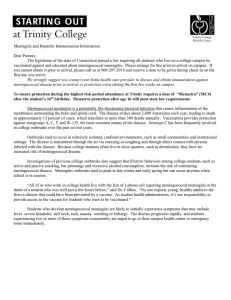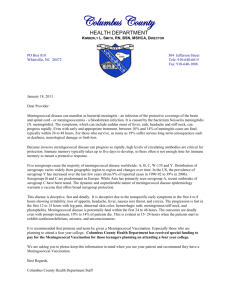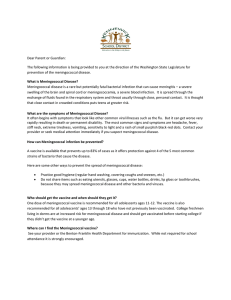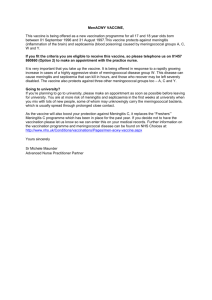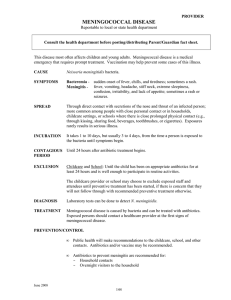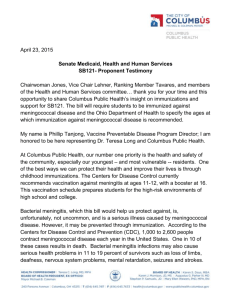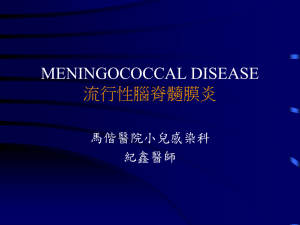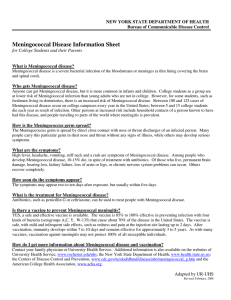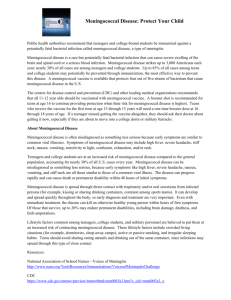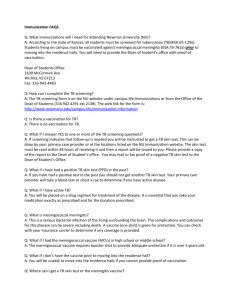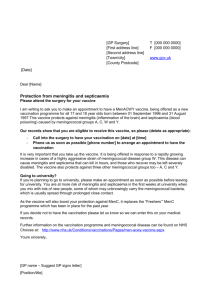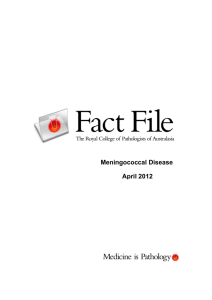UW-STOUT STUDENT HEALTH SERVICES 103 1 AVE W MENOMONIE, WI 54751
advertisement
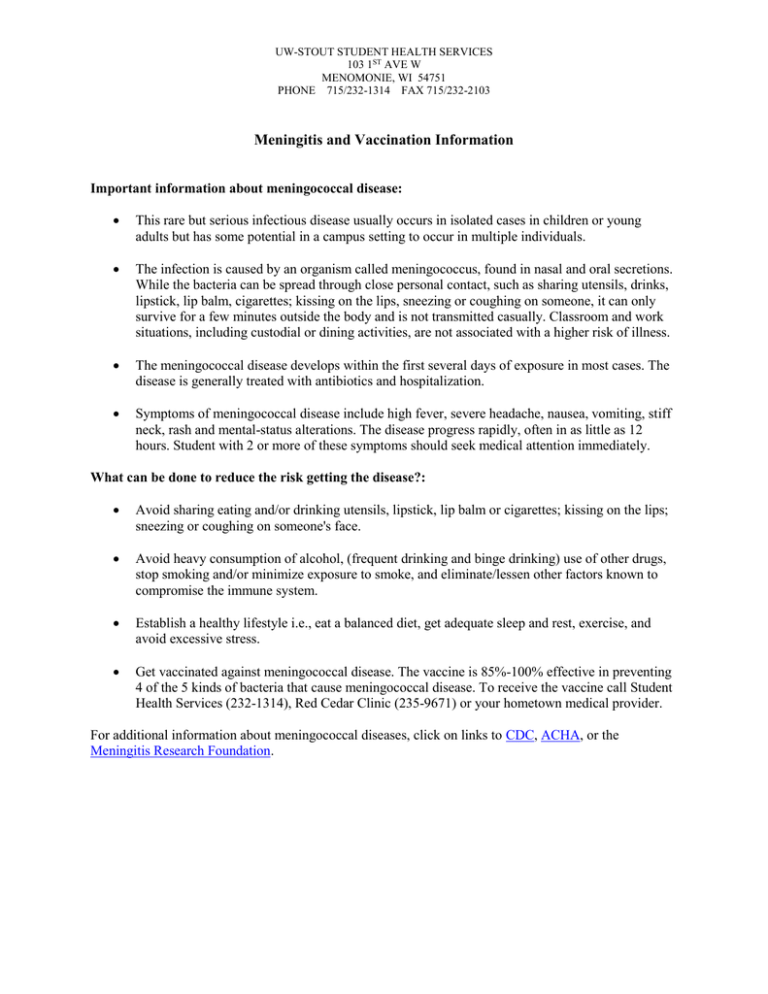
UW-STOUT STUDENT HEALTH SERVICES 103 1ST AVE W MENOMONIE, WI 54751 PHONE 715/232-1314 FAX 715/232-2103 Meningitis and Vaccination Information Important information about meningococcal disease: This rare but serious infectious disease usually occurs in isolated cases in children or young adults but has some potential in a campus setting to occur in multiple individuals. The infection is caused by an organism called meningococcus, found in nasal and oral secretions. While the bacteria can be spread through close personal contact, such as sharing utensils, drinks, lipstick, lip balm, cigarettes; kissing on the lips, sneezing or coughing on someone, it can only survive for a few minutes outside the body and is not transmitted casually. Classroom and work situations, including custodial or dining activities, are not associated with a higher risk of illness. The meningococcal disease develops within the first several days of exposure in most cases. The disease is generally treated with antibiotics and hospitalization. Symptoms of meningococcal disease include high fever, severe headache, nausea, vomiting, stiff neck, rash and mental-status alterations. The disease progress rapidly, often in as little as 12 hours. Student with 2 or more of these symptoms should seek medical attention immediately. What can be done to reduce the risk getting the disease?: Avoid sharing eating and/or drinking utensils, lipstick, lip balm or cigarettes; kissing on the lips; sneezing or coughing on someone's face. Avoid heavy consumption of alcohol, (frequent drinking and binge drinking) use of other drugs, stop smoking and/or minimize exposure to smoke, and eliminate/lessen other factors known to compromise the immune system. Establish a healthy lifestyle i.e., eat a balanced diet, get adequate sleep and rest, exercise, and avoid excessive stress. Get vaccinated against meningococcal disease. The vaccine is 85%-100% effective in preventing 4 of the 5 kinds of bacteria that cause meningococcal disease. To receive the vaccine call Student Health Services (232-1314), Red Cedar Clinic (235-9671) or your hometown medical provider. For additional information about meningococcal diseases, click on links to CDC, ACHA, or the Meningitis Research Foundation.
